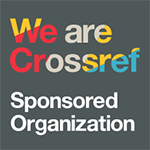Peculiarities of formation of operational images by subjects of activity in problematic and extreme situations
DOI:
https://doi.org/10.33408/2519-237X.2023.7-4.436Keywords:
operational intelligence, operational thinking, operational images, functional deformation, problem situations, extreme situationsAbstract
Purpose. To identify the features and describe the mechanisms of formation of operational images by the subjects of activity in solving problematic and extreme situations, to analyze the possibilities of assessment and development of operational intelligence.
Methods. An experiment was used to model a problem situation. Written texts were analyzed by content analysis method. To identify the relationship between the effectiveness of actions in the experiment and indicators of operational thinking were used: test for practical intelligence (Horst H. Sievert), operational tasks (V.N. Pushkin, D.N. Zavalishina).
Findings. It is shown that the operational image is formed in the course of action as a product of reflection of the transformed object. It is dynamic, subordinate to the task of action, it does not contain redundant features. An important property of the operational image is the functional deformation of the object's attributes, on the basis of which only those attributes are selected from the information stock that contribute to the solution of the task. In a situation of information uncertainty, the dynamic operational image is not formed, there is a stage of random selection of alternative variants of actions, as a result of which the state of the controlled object, as a rule, worsens. Then the relevant features are clarified, the structure of the image becomes adequate to the task of action, and, finally, the adopted strategy for solving the problem situation is developed. The correct setting of the goal of activity at the initial stage of the subject's inclusion in the operational process reduces the number of «trial and error» cycles. Operational intelligence can be assessed and purposefully developed by stimulating students' non-standard thinking, solving spatial-combinatorial operational tasks, modeling a problem situation, including the use of group potential in business games.
Application field of research. The results of the study can be applied to assess the components of operational thinking in various activities related to decision-making in problematic and extreme situations, as well as for the development of operational intelligence in the training of specialists of relevant professions.
References
Oboznov A.A. Psikhicheskaya regulyatsiya operatorskoy deyatel'nosti: v osobykh usloviyakh rabochey sredy [Mental regulation of operator activity: in special working environment conditions]. Moscow: Institute of Psychology of the Russian Academy of Sciences, 2003. 185 p. (rus)
Kudryavtsev T.V. Psikhologiya tekhnicheskogo myshleniya: protsess i sposoby resheniya tekhnicheskikh zadach [Psychology of technical thinking: the process and methods of solving technical problems]. Moscow: Pedagogika, 1975. 304 p. (rus)
Sechenov I.M. Elementy mysli: vpechatleniya i deystvitel'nost'. Issledovanie psikhiki cheloveka i ee svyazi s vneshnim mirom [Elements of thought: impressions and reality. Research of the human psyche and its connection with the outside world]. Moscow: URSS, 2022. – 233 p. (rus)
Oshanin D.A. Kontseptsiya operativnosti otrazheniya v inzhenernoy i obshchey psikhologii [The concept of efficiency of reflection in engineering and general psychology]. In book: Inzhenernaya psikhologiya: teoriya, metodologiya, prakticheskoe primenenie [Engineering psychology: theory, methodology, practical application]: ed. by Lomov B.F. et al. Institute of Psychology of Academy of Sciences of the USSR. Moscow: Nauka, 1977. Pp. 134–149. (rus)
Kremen M.A., Makarevich R.A. Metody aktivnogo obucheniya [Methods of active learning]: tutorial. Minsk: Academy of Management under the President of the Republic of Belarus, 2000. 133 p. (rus)
Kremen M. A. K voprosu opredeleniya ponyatiya «operativnyy intellekt» [On the question of defining the concept of «operational intelligence»]. Adukatsyya i vykhavanne, 2006. No. 8. Pp. 47–49. (rus)
Zavalishina D.N., Lomov B.F., Rubakhin V.F. Urovni i etapy prinyatiya resheniya [Levels and stages of decision-making]. Problemy prinyatiya resheniya [Problems of decision-making]: proc. of Institute of Psychology Academy of Sciences of the USSR: ed. by Anokhin P.K. [et al.]. Moscow, 1976. Pp. 16–32. (rus)
Pushkin V.N. Psikhologiya i kibernetika [Psychology and cybernetics]. Moscow: Pedagogika, 1971. 231 p. (rus)
Sievert Horst. Vash koeffitsient intellekta. Testy [Your IQ. Tests]: translated from German. Moscow: Interexpert, 1998. 143 p. (rus)
Dörner Dietrich. Logika neudachi [Logic of failure]: translated from German. Moscow: AST, 2023. 304 p. (rus)
Rubinstein S.L. Bytie i soznanie [Being and consciousness]. Moscow: AST, 2022. 400 p. (rus)
Published
How to Cite
License
Copyright (c) 2023 Pyzhova N.N.

This work is licensed under a Creative Commons Attribution-NonCommercial 4.0 International License.




















